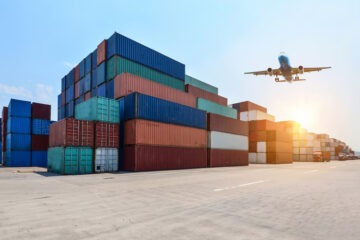
In the world of logistics and transportation, ensuring the safety and security of cargo during transit is a critical concern. Cargo shipments, whether for local delivery or international transport, face numerous risks, including theft, damage, delays, and accidents. Insurance solutions play a vital role in protecting businesses from financial losses while building trust with customers.
Why Cargo Insurance Matters in Logistics
Cargo insurance is a protective measure that provides financial coverage for goods during transit. Whether you’re transporting goods via road, sea, or air, insurance safeguards your shipment against unforeseen events that could result in damage or loss.
For businesses relying on goods transport services, ensuring the safety of their cargo isn’t just about avoiding monetary losses—it also helps maintain operational continuity and customer satisfaction.
Key Risks Faced During Transit
Cargo in transit is vulnerable to several risks, including:
- Natural Disasters: Floods, hurricanes, or earthquakes can disrupt shipping and logistics operations.
- Accidents: Road, sea, or air mishaps may lead to cargo damage or loss.
- Theft or Piracy: High-value shipments are often targeted during transportation.
- Handling Errors: Mishandling during loading or unloading can result in damage.
While experienced logistics companies take preventive measures to minimize these risks, unforeseen events can still occur, making insurance solutions essential.
Types of Transportation and Insurance Coverage
Cargo insurance solutions vary based on the types of transportation used. Let’s look at how different modes of transport benefit from insurance:
- Road Transport: Insurance for road freight covers damages due to accidents, theft, or fire. Road freight is commonly used for short-distance or regional transport services.
- Sea Freight: Shipping goods via sea is cost-effective for bulk cargo, but it’s exposed to risks like rough weather and container mishandling. Marine cargo insurance is crucial for protecting shipments.
- Air Freight: While air transport is faster and safer, insurance is still necessary to cover risks like aircraft delays, damage, or loss of high-value goods.
Benefits of Insurance Solutions in Logistics
1. Minimized Financial Losses
Cargo insurance provides compensation for damaged or lost goods, reducing the financial burden on businesses. This is particularly important for high-value shipments or specialized items transported through cargo shipping services.
2. Improved Customer Confidence
Customers are more likely to trust businesses that offer insured shipping options. When clients know their goods are protected during transit, it enhances brand reliability.
3. Operational Continuity
Uninsured losses can disrupt a business’s operations, especially for small and medium-sized enterprises. Insurance ensures continuity by covering unexpected losses.
4. Global Trade Enablement
For businesses engaged in international trade, insurance is indispensable. It provides peace of mind when dealing with cross-border shipments and varying regulations in shipping and logistics.
5. Legal Compliance
In some cases, cargo insurance is mandated by law, particularly for international freight. It ensures businesses meet regulatory requirements and avoid penalties.
Choosing the Right Insurance for Your Cargo
Selecting the appropriate insurance solution depends on several factors:
- Nature of Goods: Perishable, fragile, or high-value goods may require specialized coverage.
- Mode of Transport: The risks associated with different types of transportation dictate the kind of insurance needed.
- Transit Distance: Longer routes may involve higher risks, requiring comprehensive policies.
- Reputation of the Logistics Company: Partnering with a reputable logistics company ensures streamlined insurance processes and reduced risks.
Best Practices for Insuring Cargo
- Evaluate Coverage Options: Understand the terms and conditions of the policy, including exclusions.
- Document Shipments Accurately: Provide detailed descriptions of the cargo, including weight, dimensions, and value.
- Work with Trusted Providers: Partner with logistics companies that offer integrated insurance solutions as part of their transport services.
- Monitor Claims Process: Familiarize yourself with the procedure for filing claims in case of damage or loss.
How Insurance Enhances Logistics Services
Incorporating insurance into logistics operations doesn’t just protect individual shipments; it strengthens the entire supply chain. For example:
- Logistics providers offering insured goods transport services can handle complex shipments more confidently.
- Insured shipments reduce financial risks for businesses, allowing them to focus on growth.
- Insurance helps logistics companies build long-term partnerships by assuring clients of risk mitigation strategies.
The Role of Abhijeet Logistics in Securing Cargo
At Abhijeet Logistics Private Limited, we understand the critical importance of safeguarding cargo during transit. As a trusted name in logistics shipping, we offer comprehensive solutions for the safe transportation of hazardous and pharmaceutical goods. Our partnerships with leading insurance providers ensure that every shipment is protected against unforeseen risks. Whether you need assistance with domestic transport services or international freight, our team ensures compliance, reliability, and security at every step.



